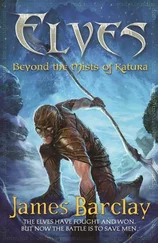At noon Irma Boyne’s two canoes beached at the site of Old Fort Confidence, and while the Indians prepared the meal, the girl wandered about the grass-grown ruins of the building whose four massive stone chimneys still stand as a gaunt and dismal monument to their builders. An incessant drizzle had set in, and in the mist-wraiths that rolled and whipped about the grim reminders of the past, she conjured stalking forms—Dease, Simpson, Richardson, Rae—intrepid explorers of eternal solitudes. The forms melted into the cold grey drizzle through which the spires of surrounding spruce trees blurred into dim background.
That night they camped comfortably in the last cabin they were to see in many a long day situated on a wooded point at the foot of the first rapids of Dease River.
To detail the ascent of Dease River would be to repeat with tiresome sameness a story of gruelling toil in the loading and unloading of canoes, portaging the outfit around swift, shallow rapids, and man-hauling the canoes up through these rapids against the swift current of the river. Some sluggish, deep stretches there were which afforded welcome relaxation in the use of the paddle and pole, but for the most part the water of the river seemed to progress to its destination by a series of rushes over a shallow, boulder-strewn bed that all but furnished a complete bar to even shallow draught navigation.
On the evening of the sixth day they camped at the mouth of a shallow creek that flowed into the Dease from the north-west. In the morning, when the Indians headed the canoes up this tiny stream, the girl called a halt. When, after repeated questioning, Teddy Bye and Bye refused to be shaken in his statement that he knew the route to the Coppermine, and that this stream furnished the only means of reaching the Dismal Lakes portage, she reluctantly ordered them to proceed. There was little or no paddling now. The stream was ridiculously small to attempt with even the light canoes. The ascent became almost a continual portage. The bends were so sharp that the canoes could hardly be edged around them, and the rapids so shallow that the empty canoes scraped harshly upon the gravel bottom. It seemed incredible that such a small and insignificant watercourse could be a recognized route of travel, and several times the girl was upon the point of ordering a return to the main river. But always Teddy Bye and Bye insisted that he was on the right trail. On the second, and third days, he pointed out old choppings, and in one place a small pile of firewood that had been left by some previous party. On the evening of the fourth day from the junction of the streams, they came upon the very limit of navigation, in a valley flanked by rolling, gravelly hills. The girl’s heart sank. It was as she had feared. The stream ended in the middle of a bleak wilderness—not a tree in sight, not even a shrub—only bare gravel, and rocks, and an occasional bunch of heather-like weed. She glanced at Teddy Bye and Bye, who smiled, and leaving the other Indians to set up the camp, motioned her to follow and led the way to a gravelly ridge, which they followed to its extremity, some two miles distant. The girl’s heart leaped with new hope. Before her lay a narrow valley, dotted throughout its length by a series of small lakes, while at its extremity, a long sheet of water was visible.
“The Dismal Lakes!” she cried, and the Indian nodded emphatically, and turning, led the way back to camp through a downpour of rain that had been threatening all the afternoon. And that night the girl retired in high spirits that even a wet and fireless camp could not dampen. The negotiation of the seven-mile portage consumed two whole days, and the traverse of the lakes two more, and on the morning of the fifth day from sighting the lakes, they slipped into the mouth of Kendall River for the short, dangerous dash to the Coppermine.
It was Irma Boyne’s first descent of a swift-water river. The upper reaches were not so bad and the girl thrilled with a wild exhilaration as the canoe shot rapidly down stream borne on the swift current. Toward noon, however, the exhilaration turned to apprehension as the frail craft hurtled past jagged boulders with the seeming speed of an express train, clearing sheer rock walls by a matter of inches, missing by hair’s breadths, fang-capped rocks that reared their heads out of the foaming white-water, and dashing to apparent destruction in narrow, boulder-studded gorges. The wild rush shook her nerves, and time and again she would gladly have exchanged her situation for the disheartening toil of the up-stream portages.
From time to time she turned her head to glance into the immobile face of Teddy Bye and Bye who knelt in the stern of the canoe, wordless, expressionless, eyes to the front, his only sign of animation, the quick, sure twists of his trailing paddle.
Late in the afternoon the canoe plunged into a limestone canyon, by far the most turbulent and the swiftest of all the chutes of the Kendall. The river seemed to dash down a veritable hill so steep was its pitch. All about the canoe the water boiled and foamed and leaped high into the air from some jagged obstruction that, had the canoe so much as touched, would have ripped through her bottom as a saw rips through a log. In white terror the girl gripped the thwarts and closed her eyes. Minutes passed as she waited in deadly calm for the crash that was sure to come. Beneath her the canoe leaped and bounded like a thing of life. In her ears the roar of the rapids blended into a mighty monotonous dirge. Subconsciously she knew that she was surprised at her own calm. It would soon be over—the crash and jar of impact, the chill of icy water, the short, frantic struggle with the whirling current, and . . . The roar of the rapids sounded from afar. The canoe floated steadily upon an even keel. It was with a distinct sense of effort that the girl opened her eyes. The bowman’s paddle lay at rest across the thwarts before him. All about the canoe the water was placid as a mill pond. She turned her head to see Teddy Bye and Bye leisurely dip his paddle and with a graceful twist, head the canoe toward the low grassy shore. The other canoe shot from the mouth of the canyon and a moment later its bow gently scraped the gravel of the low, flat point that marks the junction of the Kendall with the Coppermine.
CHAPTER III – NIXON APPLIES FOR A JOB
Camp was made in the sparse spruce growth, and after supper the girl questioned the Indians: “Have any of you ever been up the Coppermine from here?”
Teddy Bye and Bye, by far the most intelligent of the four, constituted himself spokesman. He was an exceptional Indian, in that he was honest. Not a product of the missions, he had lived the forty-odd years of his life on the Mackenzie and its tributaries. And with the exception of a few winters devoted to trapping, had lived in the constant service of the better element of white men. He had been in the employ of the Hudson’s Bay Company, of the Northern Trading Company, and had worked under “Old Cap Shot” on the river. He had been mail carrier for thousands of miles of wilderness, and a special constable and guide for the Mounted. He had made two trips to the Arctic Coast which had brought him into contact with several villages of Eskimos. He understood English, and French, as well as the Jargon, and a dozen or more Indian dialects. His speech was English, interspersed with an occasional word of French or Jargon.
Of the other Indians, two were hangers-on about the mission, and the other was a riverman who had deserted the brigade.
So, when the girl asked her question it was Teddy Bye and Bye who answered: “Non. Not have go oop de Coppermine. I’m mak’ de trip wan tam’ de way we com’ an’ down de Coppermine to de beeg wataire in de country of Innuit—w’at you call, Eskimo.” At the words, Irma noticed that the other Indians shifted uneasily, and cast sidewise glances. Evidently they had no desire to come in contact with the Eskimos, whom many of the Mackenzie River tribes hold in fear, despite the intermittent trade that exists between Eskimos and Indians to the north-east of Great Bear Lake. She hastened to put them at ease:
Читать дальше












